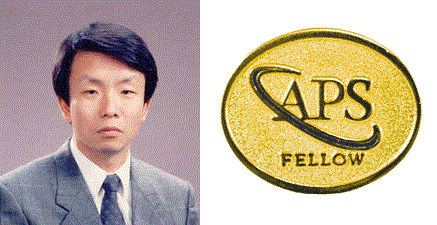Professor Hyung Jin Sung of the Department of Mechanical Engineering was elected as a fellow to the American Physical Society (APS). Professor Sung received recognition for his research in turbulence, fluid-structure interaction, and numerical and experimental applications.

APS Fellows are chosen from the society members through elections; only outstanding members who have made far-reaching contributions in expanding the frontiers of physics are considered for such an honor. Professor Sung’s fellowship was evaluated and nominated under the APS Division of Fluid Dynamics. Because it consists of only 0.5% of all APS members, APS Fellowship is considered to be the upmost privilege in the physics community.
Professor Sung’s Flow Control Laboratory has been the cornerstone of cutting-edge research in fluid mechanics. The laboratory focuses on understanding flow controls, turbulent boundary layers, and complex flows. The laboratory’s research output has also resulted in a number of potential applications to be employed in a wide range of fields, including nanomaterials, jet printing systems, sustainable energy, and micro fuel cells.
APS is a non-profit organization aimed to advance the realms of physics through a variety of media. Its activities range from publishing research journals to conducting international activities. Representing over 50,000 members worldwide, it is the second largest organization of physicists, exceeded only by the German Physical Society. The American Physical Society was founded in 1899 and is headquartered in College Park, Maryland.
Professor Sung received his bachelor’s degree from Seoul National University in 1978, and received his master’s and doctorate degrees from KAIST in 1980 and 1984, respectively. He has served as professor at the Department of Mechanical Engineering since his graduation. He also served as visiting professor at University of Illinois at Urbana-Champaign, Hokkaido University, Karlsruhe Institute of Technology, and University of California, Los Angeles.
Min Kyu Choi
scentimentality@gmail.com

